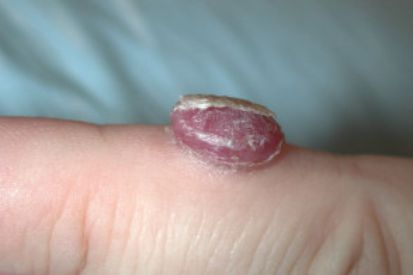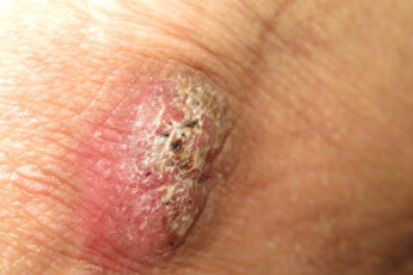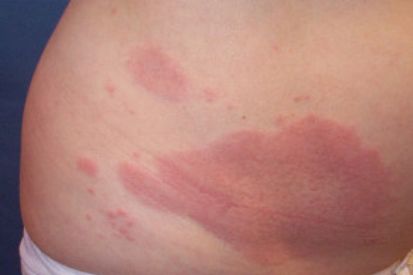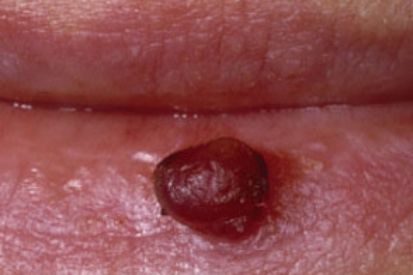Granulomas
A granuloma is a small cluster of immune cells that forms as the body's response to injury, infection, or certain conditions. These nodules help isolate and control substances the body cannot eliminate, preventing further harm.
At Pinehurst Dermatology & Mohs Surgery Center, our providers are experts in diagnosing and treating granulomas. We specialize in identifying their causes and developing tailored treatment plans, which may include medications or minor procedures.
Our team’s expertise ensures effective management of granulomas. We're dedicated to providing top-tier dermatological care to help you achieve your skin health goals. Schedule an appointment with one of our experienced providers at Pinehurst Dermatology & Mohs Surgery Center today for personalized care.
Examples of Granulomas




What are the Symptoms of Granulomas?
- The symptoms of granulomas can vary widely depending on the organ or tissue affected.
- Skin nodules or bumps.
- Rash.
Causes of Granulomas
- Granulomas are organized clusters of immune cells that form in response to infections, inflammation, or exposure to certain substances.
- They represent the body's attempt to isolate and contain perceived threats that it cannot eliminate, involving immune cells like macrophages and lymphocytes.
How to Prevent Granulomas
Granuloma FAQs
Granulomas can be caused by various factors, including infections (such as tuberculosis), inflammatory conditions (like sarcoidosis), foreign bodies, and certain autoimmune diseases.
Some granulomas may resolve on their own, especially if the underlying cause is treated. However, others may persist and require attention from a dermatology professional.
Granulomas are not cancerous, but because they can sometimes resemble cancerous growths, it's essential to have them evaluated by a healthcare provider to rule out malignancy.
Yes, granulomas can recur if the underlying cause is not fully resolved. Ongoing monitoring and treatment by a dermatology professional may be necessary to prevent recurrence.
How to treat Granulomas
Our dermatologists typically treat granulomas by addressing the underlying cause and managing inflammation. Treatment may involve topical or oral corticosteroids to reduce inflammation, immunosuppressive medications, or, in some cases, surgical removal of the granuloma. Antibiotics might be prescribed if the granuloma is related to an infection.
The specific approach depends on the type and cause of the granuloma, and individual cases are often managed on a case-by-case basis. It's crucial to consult with your dermatologist for a proper diagnosis and tailored treatment plan.
Featured Products

Revision Gentle Foaming Cleanser
Revision Gentle Foaming Cleanser is a soap-free cleanser that comforts and moisturizes all skin types. 5 fl oz / 150 mL

SENTÉ Dermal Repair Cream
SENTÉ Dermal Repair Cream is the flagship skin care product formulated with patented HSA (Heparan Sulfate Analog) technology. This unique and elegant formulation is clinically shown to improve the appearance of mature or photo-damaged skin. Non-Comedogenic, Hypoallergenic, Dermatologist-Tested. Paraben Free, Fragrance Free. 1.7 fl oz / 50 mL
